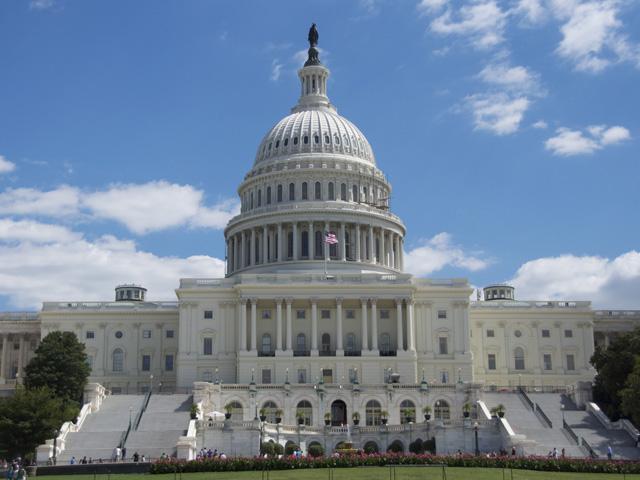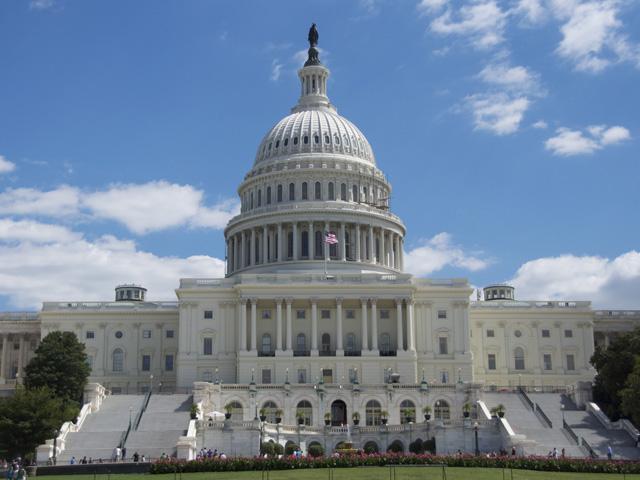Ag Policy Blog
400-Plus Groups on Farm Bill Budgets and Pesticide Bills
Getting to 400 must be the jackpot number somewhere today when it comes to policy issues in Washington.
400 is obviously more than "300" but it doesn't quite have the same effect as Leonidas yelling "This is Sparta!"
"Our letters will blot out the sun." "Then we will lobby in the shade."
I'm digressing here.
A collection of 400 state and national agricultural groups, including some wildlife and conservation organizations, on Tuesday wrote a letter backing the need to provide the House and Senate agriculture committees "with sufficient budgetary resources to write a new, bipartisan, multi-year, comprehensive, and meaningful" farm bill.
The groups sent the letter to the respective chairs and ranking members of the Senate Budget Committee and the House Budget Committee.
The letter doesn't spell out any specific dollar figures, but points out some issues surrounding production agriculture.
"Just as there are many pressures on the federal budget, there are many pressures on U.S. farmers and others throughout the agricultural supply chain who provide food, feed, fuel, fiber and other products to consumer across the United States and abroad," the letter stated.
The letter also points to $196 billion in agricultural exports last year as "marked with geopolitical volatility" because China was the top market. The farm groups point out that even in the trade war in 2018, causing commodity prices to fall, the Title I commodity safety net did not kick in, "which unfortunately revealed gaps in the farm safety net." Citing the decline in the commodity safety net, the farm groups point con continuing tensions with China as underscoring the need for "a more meaningful, predictable farm safety net and the need to invest more into trade promotion programs to help diversify agricultural markets."
P[L1] D[0x0] M[300x250] OOP[F] ADUNIT[] T[]
The letter doesn't go into detail about the Trump administration creating the Market Facilitation Program (MFP), which paid out $23 billion in 2018 and 2019.
The letter also cited projected high production costs and lower projected crop cash receipts – coming off a record year for net farm income in 2022 – that led USDA in February to project a 20.7% decline in net cash farm income in 2023.
Ad-hoc assistance, such as MFP payments, made up approximately 70% of direct farm payments from 2018-2021. The letter states that the farm bill "provides an opportunity to address very real needs in agriculture and rely less on off-budget ad-hoc assistance."
Beyond the Title I programs, the letter also cites the need "for protecting and enhancing crop insurance" as well as conservation, rural development, research, energy independence and food security, as well as addressing logistical challenges.
Last week, the House Agriculture Committee sent its annual views to the House Budget Committee. The committee also suggested more funding is needed in commodity programs.
Budget letter from ag groups: https://soygrowers.com/…
Also see, "Commodity Groups Detail Farm Bill Priorities,"
LETTER ON PESTICIDE LAWS
Earlier Tuesday, CropLife America also sent out a news release citing more than 400 organizations had sent a letter to lawmakers backing the current pesticide regulatory system under the Federal Insecticide, Fungicide and Rodenticide Act (FIFRA). The letter seeks to counter a bill by Sen. Cory Booker, D-N.J., dubbed the "Protecting America's Children from Toxic Pesticides Act."
Booker's bill would amend FIFRA to ban certain pesticides such as paraquat and neonicotinoids. As of now, Booker's legislation, S. 269, has four co-sponsors.
CropLife America noted the current FIFRA law gives EPA authority to regulate pesticides "under a rigorous scientific foundation that balances the risks and benefits of every pesticide on the market today." EPA also must review each pesticide approval every 15 years, but CropLife America stated "regulators are making formal assessments much more frequently as more data becomes available."
The letter said Booker's bill would create an "unscientific and unbalanced process that could unnecessarily remove pest control options from those who need them to safely grow crops," as well as use conservation practices and crop rotations.
CropLife et al letter https://static1.squarespace.com/…
Chris Clayton can be reached at Chris.Clayton@dtn.com
Follow him on Twitter @ChrisClaytonDTN
(c) Copyright 2023 DTN, LLC. All rights reserved.






Comments
To comment, please Log In or Join our Community .